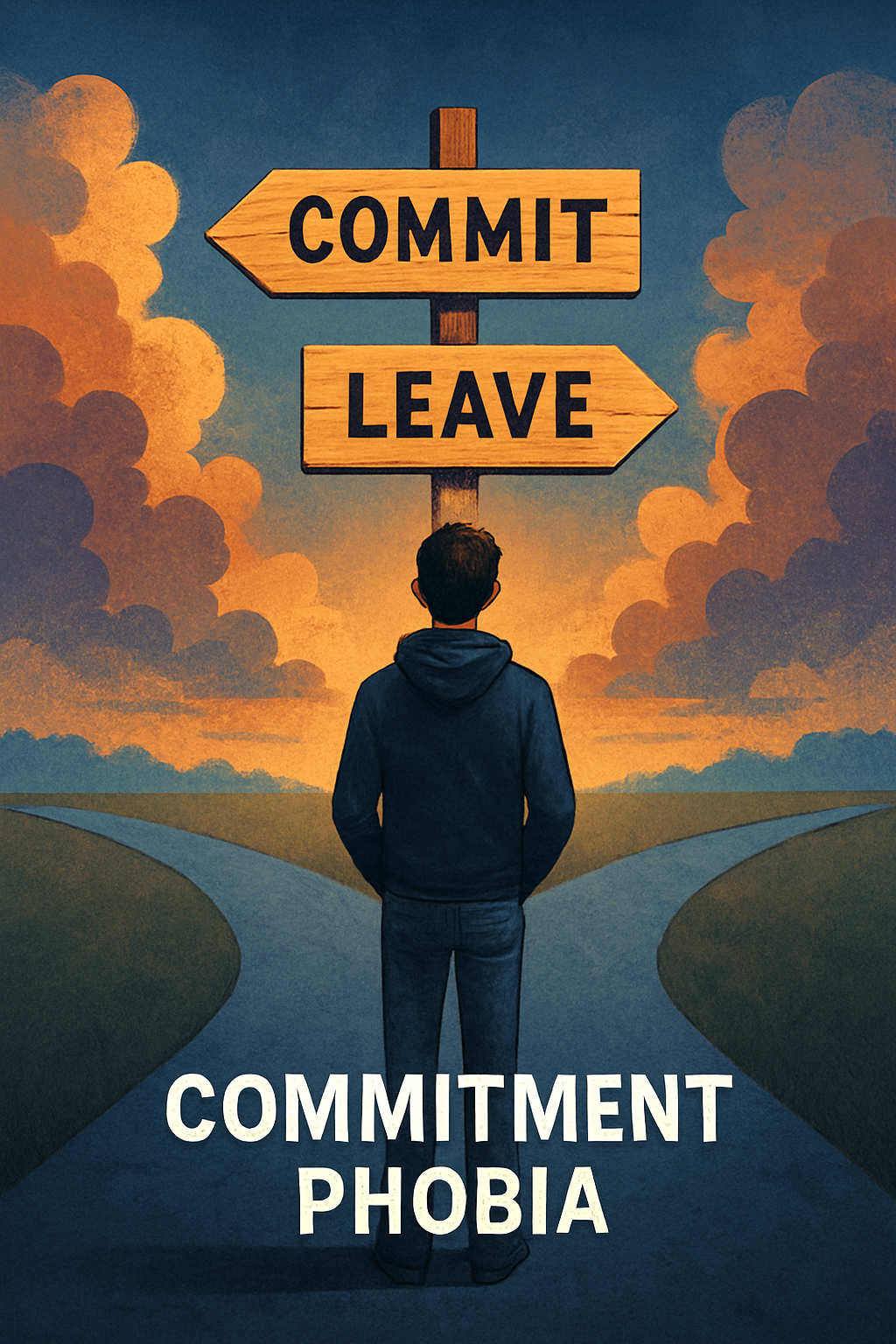
Commitment Phobia: 5 Toxic Ways It Sabotages Love and How to Break Free
Introduction: Understanding the Fear Behind Commitment
Commitment phobia is a term often thrown around in casual conversations, but for many people, it’s a deeply rooted emotional struggle that affects their relationships and overall well-being. It refers to a persistent and intense fear of commitment, particularly in romantic relationships. This fear is not just about being indecisive or wanting to remain single—it often stems from unresolved trauma, past emotional wounds, or anxiety about the future.
People with commitment phobia may crave intimacy and love, yet find themselves sabotaging relationships when things start to get serious. This internal conflict can lead to confusion, heartbreak, and a cycle of avoidance that prevents emotional growth.
What Causes Commitment Phobia?
Commitment phobia is not a personality flaw, but a response to psychological patterns that have often developed over time. Some of the common causes include:
- Fear of Vulnerability – Opening up emotionally can feel threatening to those who’ve experienced betrayal or emotional neglect.
- Past Trauma – Unresolved past experiences like childhood abandonment or toxic relationships can create deep emotional scars.
- Perfectionism – Some people fear making the wrong choice and hold themselves to unrealistic standards in choosing a partner.
- Fear of Losing Independence – The idea of commitment might be associated with losing one’s identity or freedom.
- Low Self-Esteem – People may believe they are unworthy of love or incapable of maintaining a long-term relationship.
7 Subtle Signs of Commitment Phobia
- Mixed Signals in Relationships
- A person with commitment phobia may show deep affection one moment and pull away the next. They might talk about a future together but avoid taking concrete steps toward it.
- Fear of Labels or Definitions
- They resist terms like “boyfriend,” “girlfriend,” or “partner” and shy away from conversations that define the relationship.
- Sabotaging Good Relationships
- When things seem to be going well, they might pick fights, ghost, or focus on flaws to create distance and justify leaving.
- Idealizing the Idea of Love But Avoiding It in Reality
- They may consume romantic content and express a desire for love, but become uncomfortable when real intimacy begins to form.
- Overthinking Every Step
- Simple relationship decisions feel overwhelming. This overthinking can paralyze action and cause emotional exhaustion.
- Prioritizing Freedom at the Expense of Connection
- They may avoid closeness out of fear that it will infringe on their personal space or autonomy.
- A Pattern of Short-Lived Relationships
- Their history might include many relationships that end when they start to get serious.
Emotional Consequences of Commitment Phobia
The cycle of avoidance, overthinking, and regret can take a toll on emotional health. People dealing with commitment phobia often experience:
- Chronic loneliness despite being in or around relationships
- Self-doubt and guilt for hurting others or not being able to move forward
- Anxiety from the internal conflict of wanting love but fearing it
- Difficulty building long-term bonds, which can extend to friendships and professional relationships
This fear-driven behavior is emotionally exhausting, not just for the individual but also for those who care about them.
Breaking the Cycle: How to Move Forward
Commitment phobia doesn’t have to be a life sentence. Awareness is the first step toward healing. Here are strategies to break the cycle:
- Self-Reflection and Journaling
- Writing about your fears, past experiences, and emotional triggers can help you understand the roots of your avoidance.
- Therapeutic Support
- Talking to a mental health professional can help you unpack your fears in a safe and guided environment.
- Gradual Exposure to Vulnerability
- Start small. Share a personal story, accept emotional support, or try committing to small plans without pressure.
- Challenge Negative Beliefs
- Replace thoughts like “I’ll lose my freedom” or “I’ll get hurt” with empowering ones such as “I can choose healthy love.”
- Practice Mindfulness
- Staying present in relationships helps reduce overthinking and fosters genuine connection.
- Communicate with Honesty
- If you’re in a relationship, being open about your fears can prevent misunderstandings and create empathy.
Relationships Need Courage, Not Perfection
Fear of commitment doesn’t mean you’re incapable of love. It simply means there’s emotional work to be done. Healthy, secure relationships are built not by those who are fearless, but by those who are willing to face their fears.
Commitment phobia may stem from old wounds, but healing is always possible. With time, self-compassion, and the right support, emotional freedom and meaningful connection can coexist. Don’t let fear hold you back from the love and life you deserve.

